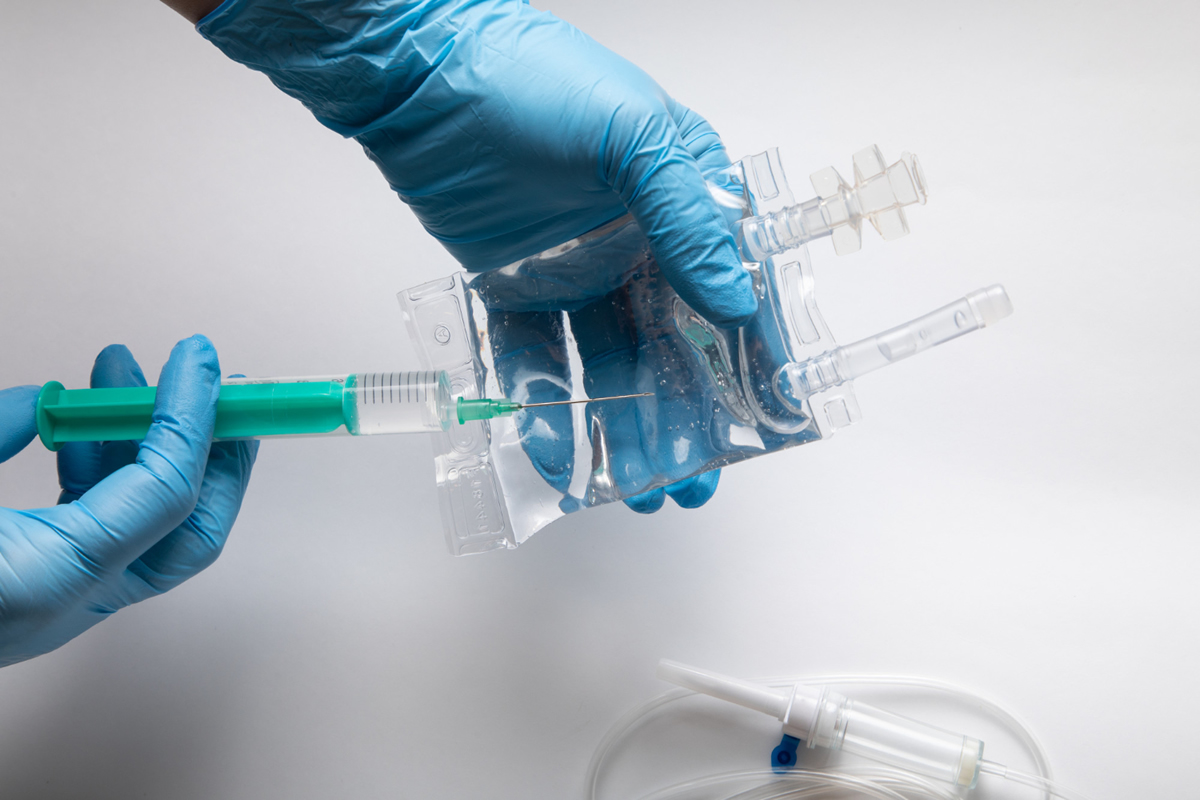
Dependence on imported raw materials is holding back the Russian pharmaceutical industry
The Russian pharmaceutical industry remains dependent on imported raw materials, including active pharmaceutical ingredients. In order to develop more innovative medicines, the country needs to create conditions for the development of raw materials and technological infrastructure.
The task is to reach the full production cycle
Speaking at the Russian National Congress “Man and Medicine,” the head of the Ministry of Health, Mikhail Murashko, noted that the country is going a long way today in standardizing certain approaches, in particular to financing scientific developments. “We are creating a new information resource, including with the competencies of certain developers, pharmaceutical manufacturers, laboratories that conduct preclinical research. This resource is intended not only to structure, standardize and formulate approaches to financing, but also to ensure communication with developers,” the minister said.
According to him, technological sovereignty should be built on new breakthrough solutions, as well as on the uninterrupted supply of healthcare with already tested medicines.
This year, a separate track of the congress was devoted to the development, implementation and circulation of medicines. The event participants paid special attention to the use of domestic medicines and increasing trust in them from the medical community and patients.
According to the Ministry of Industry and Trade for 2023, of the 814 international nonproprietary names (INN) included in the list of vital and essential drugs (VED), 594 (75.6%) each have the technological ability to produce the finished dosage form in Russia. Of these, 426 INNs (55.8%) are produced through the full production cycle, starting with the pharmaceutical substance.
Domestic pharma produces its own innovative medicines, including monoclonal antibodies, immunotherapy drugs and others. But our pharmaceutical companies still rely heavily on imported substances (almost 90% are imported from India and China). The program for the development of the pharmaceutical industry for the period until 2030 (“Pharma-2030”) sets the task of developing the production of full-cycle drugs, including the independent creation of substances.
The strategy assumes that conditions will be created in Russia for the development of raw materials and technological infrastructure of the pharmaceutical, biotechnological, chemical and microbiological industries through the involvement of companies that have their own factories in the process.
The SIBUR company is studying the possibility of producing intermediates – key components for the synthesis of pharmaceutical substances. To create a high-quality medicine, it is necessary to ensure that the pharmaceutical substance contains a sufficient amount of the active substance and is maximally purified from harmful impurities that cause side effects. To do this, the drug goes through a long chain, which involves representatives of the chemical industry, small-scale chemists who purify the component, manufacturers of the active pharmaceutical substance and the pharmaceutical company.
In May 2023, a working group on the release of substances was created on the basis of the Russian Union of Industrialists and Entrepreneurs in the Russian Federation. It includes SIBUR, Gazpromneft-Innovations, large domestic pharmaceutical companies and small-scale chemists. The group members analyzed the possibility of creating intermediates for the 59 most popular INNs. Passports of 12 projects are being completed, their implementation is planned in 2024–2025.
The decision was packed into amendments
In addition to active pharmaceutical ingredients (80% of APIs are imported) and excipients (50% are imported), Russia is also very dependent on raw materials for drug packaging. Russian polymer raw materials for blister packaging used to be inferior to imported ones due to outdated equipment, technologies and insufficient control of technological processes. More than 70% of packaging for medicines is now imported, and some materials, for example, raw materials for vials with injectable drugs, have never been produced in Russia.
The development and local production of raw materials (polymer granules) for pharmaceuticals has become a strategically important task necessary for creating a full cycle of drug production in the country. High physico-chemical characteristics of raw materials for pharmaceutical packaging are critical for the safety and effectiveness of drugs and must meet stringent standards.
With government support and investment, our pharmaceutical industry can reach a world level that meets generally accepted international quality standards, primarily GMP (Good Manufacturing Practice). This will reduce dependence on imports and increase the competitiveness of the domestic pharmaceutical industry. The sectoral transformation of Russian business also contributes to this. Since April, SIBUR has had a Medicine division operating within its structure, which focuses on providing domestic medical and pharmaceutical manufacturing companies with high-quality raw materials.
Advanced technologies are being introduced and quality standards are being raised, including in the pharmaceutical packaging segment.
After SIBUR launched the production of medical grades of raw materials for pharmaceutical packaging, its manufacturers still have two more significant problems. Firstly, automatic lines for its production that meet international quality standards are just beginning to appear in Russia. Secondly, in Russia there is an acute shortage of specialists in the production of such packaging.
To solve these problems, on January 30, 2024, amendments were made to the law “On the Circulation of Medicines”, expanding state support for pharmaceutical packaging manufacturers. The document involves the development of infrastructure. In addition, an interdepartmental working group is being created to address the development of pharmaceutical packaging production.
According to the task set by the government, by 2030 the volume of the pharmaceutical market should be increased to 3.7 trillion rubles, and the share of drugs produced in the full cycle should be included in the list strategically significant – up to 80%. Without achieving technological sovereignty in the production of the necessary raw materials, this is impossible. Both the state and business understand this.
Important! Information is provided for reference purposes. Ask a specialist about contraindications and side effects and under no circumstances self-medicate. At the first signs of illness, consult a doctor.
